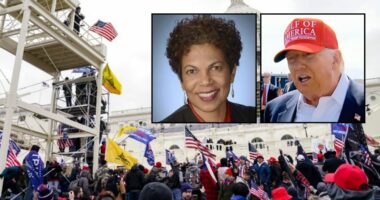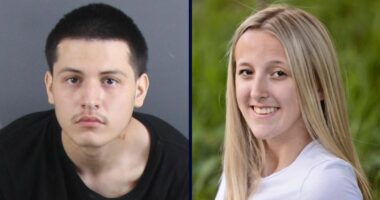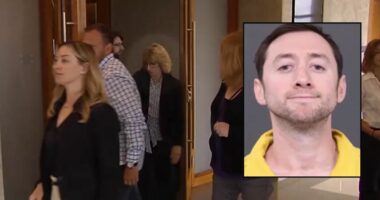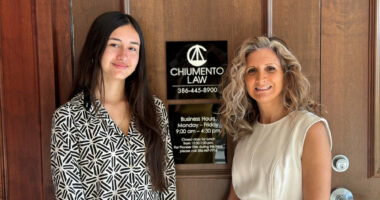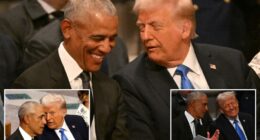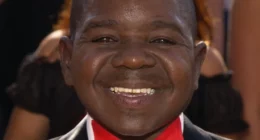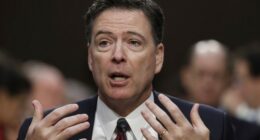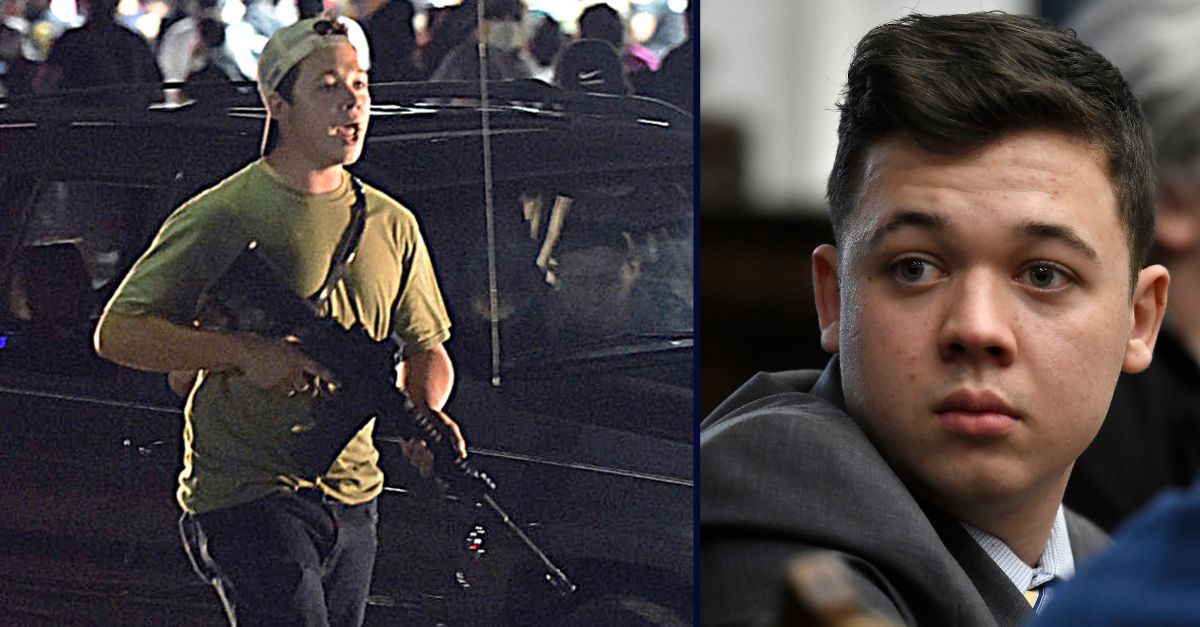
Left: FILE – Kyle Rittenhouse walks along Sheridan Road in Kenosha, Wis., in this Aug. 25, 2020 file photo (Adam Rogan/The Journal Times via AP, File). Right: FILE- Kyle Rittenhouse looks back as attorneys discuss items in the motion for mistrial presented by his defense at the Kenosha County Courthouse in Kenosha, Wis., on Wednesday, Nov. 17, 2021 (Sean Krajacic/The Kenosha News via AP, Pool_File).
Kyle Rittenhouse’s former bodyguard and spokesperson feels the 17-year-old might never have been acquitted of killing two people and seriously injuring another if the jury knew then what he knows now.
“When the world finds out everything that happened in this case and with Kyle, it’ll be shocking. It’s breathtaking,” Dave Hancock said in an interview for a documentary that sheds new light on what happened that fateful night in August 2020, on the streets of Kenosha, Wisconsin.
Hancock said that he learned during the trial that Rittenhouse had allegedly used racial slurs in messages sent to his friends and appeared to be looking for an opportunity to use a weapon.
“There was a history of things he was doing prior to Kenosha, specifically patrolling the street for months with guns and borrowing people’s security uniforms, doing whatever he could to try to get into some kind of a gunfight,” Hancock claimed. “I believed things he told me that I now understand to be one of his many lies. And that hurts.”
Another Rittenhouse bodyguard, Leonard “LT” Toon, says he, too, saw the racial slurs in transcripts allegedly from Rittenhouse’s cellphone.
“So, when I see this, like my blood starts boiling. I look directly at him and I look at the lawyers and I said, what is this? I said, what is this? How could you say this? And he said nothing.”
Rittenhouse’s lawyer, Mark Richards, said he is not aware of any racist messages found on Kyle’s cellphone. “To say that Dave (Hancock) is a disgruntled former employee, spokesperson or fundraiser would be a major understatement,” Richards added.
Hancock says he now regrets publicly defending Rittenhouse as his spokesperson.
“What I was telling America was not true,” he said.
Hancock says he is prepared to work with the lawyers handling a civil suit brought against Rittenhouse by the survivor and the families of the victims.
“If Dave is providing info to Plaintiffs, it would not surprise me, he has been threatening to do this for quite some time,” Richards said. “He also told me he would give the phone back if Kyle paid $40K that he believes Kyle ‘owes’ him. Never a dull moment.”
The prosecutor in the Rittenhouse murder case, Thomas Binger, told Law&Crime he doesn’t recall seeing the allegedly racist messages but says it’s possible there were differences in the technical exploitation methods used in examining Rittenhouse’s cellphone.
“His operating system on his iPhone was newer than what our brute force extraction software could access,” Binger said.
Binger said the alleged text messages “would have bolstered my main argument about Kyle’s state of mind, that Kyle was looking for an excuse to shoot people. It may have changed the outcome of the trial.”
Rittenhouse did not respond directly to Hancock’s allegations, but he previously denied allegations that he was a racist when
videos emerged showing him with a gathering of the right-wing extremist group, the Proud Boys, at a Wisconsin bar.
“I’m not a white supremacist. The trial proved I wasn’t a white supremacist. I don’t believe in white supremacy, I think it’s disgusting and I think it’s hateful,” Rittenhouse said.
In the documentary, Rittenhouse defended his actions in opening fire on the three individuals.
“I was left with no other choice because I was surrounded and nowhere to go and nowhere to run,” he said. “I didn’t do anything wrong.”
“The Trials of Kyle Rittenhouse,” a 90-minute documentary, can be seen on the Law&Crime Network, Friday, Sept. 27, at 9 p.m. ET.
See how to watch it here.
“The Trials of Kyle Rittenhouse” from Law&Crime Productions. Written by Brian Ross. Produced and Directed by Rhonda Schwartz and Brian Ross. Senior Video Editor Michelle Teodori. Correspondents: Angenette Levy, Brian Buckmire, Adam Klasfeld and Brian Ross. Producers: Teri Whitcraft, Angenette Levy, Ariel Tu. Executive Producers: Brian Ross, Rhonda Schwartz, Teri Whitcraft. Senior Executive Producers: Rachel Stockman, Dan Abrams.
Have a tip we should know? [email protected]

